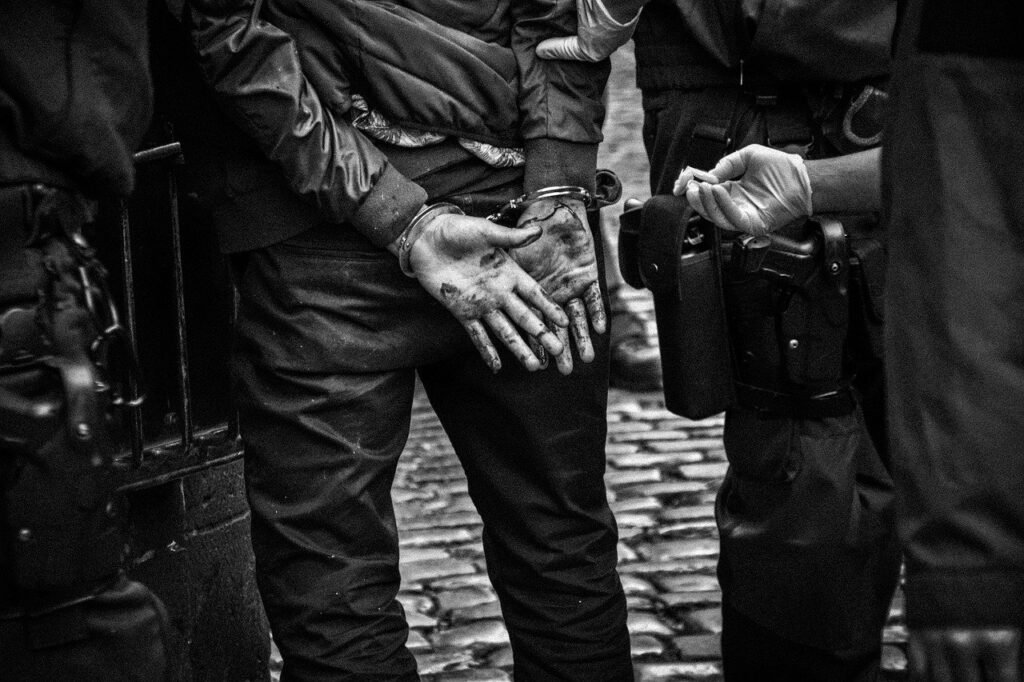Latin America and the Caribbean suffer awful evils of violence and vicious crimes; growth is stunted, surpassed, and preceded beyond tolling resources. Actually, estimated monetary prices of 3% in lost GDP are the basic indicative impact suffered by the region on accounts of crime. Productivity is squandered; ever-increasing costs are held in securing transactions; and even more spent on policing and prisons in part the damage of this kind. It is not just a financial issue; it very much impedes investment, which in turn reduces tourism and leads to an exodus in search of safer places for success.

Latin America’s 8% share and one-third of world homicides leads to the need for swift graduate action. Regarding crime and economy, the cycle is abundantly clear: crime begets economic uncertainty, and again, economic uncertainties create space for crime. But this cycle can be broken.
The Economic Impact of Crime
New research from the IDB and the IMF has shown how crime and insecurity help to reinforce themselves and act as barriers to economic investment, leading to increases in inequality and hurtful impacts upon business. The region loses about 3.4% of its GDP each year to violent crimes, equivalent to about 80% of the budgets of public education. But it does not stop here. There is even an added loss in productivity and inhibition of innovation that results in economic stagnation. A study has shown that homicide rates could be reduced by half in a crime-ridden area, thus also leading to gains of as much as 30% in the GDP output. General Crime Prevention-just by gardening, for example-could increase the annual increase in GDP growth by around 0.5%.
Beyond economic difficulties such as recession, spikes in inflation, and increases in inequality, one of the usual results of higher crime rates increases as well. For example, a recession in Latin America translates to a 6% increase in the number of murders over the subsequent year and an increase of homicides by 10% for countries experiencing the inflation rate.
Breaking the Cycle: What Policymakers Can Do
Above all, a sound economic policy is necessary to establish economic security, reduce inflation, and give people many opportunities possible to develop. Low inflation equates with building strong social safety nets and investing in education and employment, breaking the violent in a poorer economy.
Moreover, financial authorities should also play a more poised role because such authorities target illegal cash flows, thereby curbing money laundering and breaking criminal networks and their effects on the economy.
It is not just policies of economic aspect to address organized crime. Governments must thus adopt more wholistic approaches on how they prevent crime by focusing on high-risk groups, getting better at crime monitoring and working with several agencies for harmony across government ministries.
Some countries completed it successfully, because for example, Jamaica with the IMF had significantly lowered its public debt and pumped up its key social investments. community-based interventions in the Caribbean slashed a gang-related violence to more than 60% of neighborhoods affected. Argentina was able to succeed when programs on territorial control followed by tougher legislation led to 65% lower homicides in just a span of 11 months.
Smart Spending for Security
Latin America currently spends around 1.9 percent of its total GDP on security-related items. However, the use of these resources is frequently not focused and is inappropriate to where it is most needed. Policymakers should critically examine where the dollars are being spent and make sure that the spending is in the most effective means that will yield the most amount of benefits. In addition to the significant costs incurred herein, countries should closely monitor security spending in the same manner that they do for their other major financial commitments.
It Requires Regional Cooperation and Action Done in a More United Latin America
A product of cross-border crime, regional cooperation is a must and will help address and prevent such issues through boundaries of problems that collectively require central agreement. In light of intransigent and endemic organized crime perpetrating crimes alongandeven across borders, however, the remedy must lie in building a closer working relationship between countries through a collaborative approach that allows the sharing of resources, intelligence, and joint strategies.
IDB’s Alliance for Security, Justice, and Development seeks to create a coordinated partnership between governments, civil society, and suitable private sector investments as a way forward. By linking these efforts across the region, we will find it easier to face complex crime networks that help destabilize the security of our communities.
A Secure Future for Latin America
The impact of crime is deeply felt on the ground in communities across Latin America. There is no way for it not to be felt by the people; they live in fear, their future opportunities lost, and hopes for the future all vanish. It can only get better by the coming together of policymakers, financial institutions, and grassroots communities to design programs that work based on sound scientific evidence.
It requires the right mix of economic policies, effective security measures, and regional cooperation to create a safer and more prosperous future for the people of Latin America.
